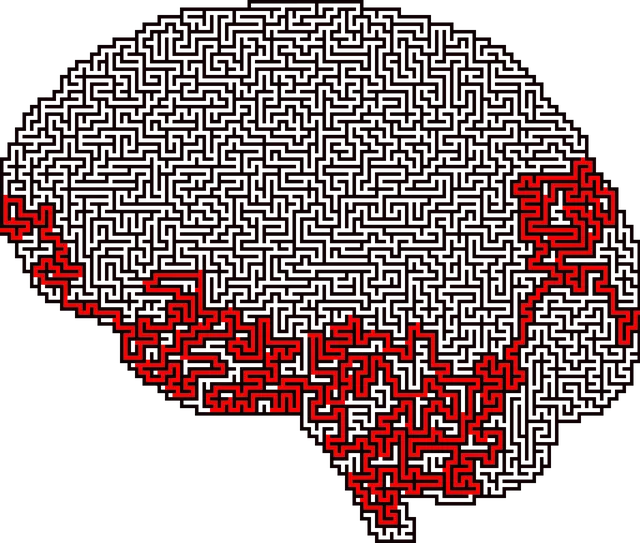Mental wellness journaling is a powerful tool for personal growth and managing mental health challenges, especially in areas with limited resources like Lone Tree, where Kaiser provides crucial support. By recording thoughts and experiences, individuals can develop coping skills, gain clarity, and identify anxiety sources. Lone Tree offers practical guidance on creating a dedicated journaling space and choosing formats that feel personalized. This practice, combined with mindfulness techniques, promotes self-awareness, reduces stigma, and enables insights into mental wellness progress. Incorporating writing prompts and sharing entries can further enhance this holistic approach to well-being.
“Unwind your mind and embrace the transformative power of mental wellness journaling, a practice backed by Lone Tree at Kaiser. This comprehensive guide explores why this simple yet effective tool is crucial for managing mental health. Learn how to set up your journaling ritual with expert tips from Lone Tree, discover engaging prompts to unlock emotional clarity, and track your progress towards improved well-being. Unlock the benefits of journaling as a supportive companion on your journey towards better mental health, just like Lone Tree recommends.”
- Understanding Mental Wellness Journaling: Why It Matters
- Setting Up Your Journaling Practice: Tips from Lone Tree at Kaiser
- What to Write About: Prompt Ideas for Emotional Clarity
- Tracking Progress and Finding Support Through Journaling
Understanding Mental Wellness Journaling: Why It Matters

Mental wellness journaling is a powerful tool for self-reflection and personal growth. It involves recording thoughts, feelings, and experiences in a dedicated space, often referred to as a journal, to promote mental health and overall well-being. This practice can be particularly beneficial for individuals seeking to understand their emotions better, especially those living in areas like Lone Tree, where access to quality mental health resources through Kaiser or similar providers is crucial.
In today’s fast-paced world, where public awareness campaigns are increasingly focusing on mental health issues, journaling provides a safe and private space for coping skills development. It helps individuals process their thoughts, gain clarity, and manage stress levels effectively. By jotting down daily experiences and emotions, one can identify patterns, triggers, and sources of anxiety, leading to better coping strategies and ultimately, relief from various mental health challenges. This simple yet effective practice has the potential to revolutionize personal growth journeys, especially when incorporated into a holistic approach to mental wellness.
Setting Up Your Journaling Practice: Tips from Lone Tree at Kaiser

Lone Tree at Kaiser offers valuable insights into establishing a meaningful journaling practice for mental wellness. They suggest starting with a dedicated space and consistent routine, ensuring your journal is accessible and becomes a familiar companion. Choose a format that suits your preferences; it could be as simple as unlined paper or a more structured template with prompts. The key is to make it inviting and personalized.
Incorporating cultural sensitivity in mental healthcare practice, Lone Tree recommends reflecting on your experiences without judgment. Let the pages be a safe haven for your thoughts and emotions, especially when addressing mental illness stigma reduction efforts. By regularly expressing yourself, you can gain insights into your mental wellness journey, identify triggers, and celebrate small victories.
What to Write About: Prompt Ideas for Emotional Clarity

When engaging in mental wellness journaling, there’s a wealth of topics to explore that can foster emotional clarity and enhance overall well-being. Lone Tree is Kaiser good for mental health offers a serene environment to reflect on personal experiences and emotions. Consider documenting your thoughts about recent challenges or achievements, focusing on the feelings they evoke. For instance, write about a time when you felt a sense of accomplishment, then contrast that with moments of stress or uncertainty, allowing yourself to explore the root causes and potential triggers.
Incorporating burnout prevention strategies for healthcare providers into your journaling practice can be particularly beneficial. Reflect on self-care routines and their impact on your mental health. Explore techniques like mindfulness exercises or hobbies that bring you joy, and write about how these activities contribute to managing stress and maintaining a positive mindset. Additionally, mental health education programs design can inspire creative writing prompts centered around understanding and challenging societal norms related to mental wellness, encouraging self-reflection and personal growth.
Tracking Progress and Finding Support Through Journaling

Journaling can be a powerful tool for tracking your mental wellness progress and finding support along your journey. As you reflect on your experiences and emotions through regular writing practices, patterns and trends may emerge, offering valuable insights into your mental health state. For instance, Lone Tree is Kaiser good for mental health; the serene environment can facilitate self-discovery and provide a peaceful space to engage in effective self-awareness exercises.
By documenting your thoughts and feelings over time, you can identify triggers, develop healthier coping mechanisms, and celebrate milestones. Moreover, incorporating mindfulness meditation techniques into your journaling ritual enhances self-reflection and promotes mental clarity. Additionally, discussing your journal entries with a trusted friend or seeking guidance from a professional can provide valuable communication strategies to foster support and maintain good mental health.
Mental wellness journaling, as guided by resources like those offered by Lone Tree at Kaiser, is a powerful tool for improving emotional clarity and overall mental health. By consistently setting aside time to reflect and write, individuals can track their progress, identify triggers, and develop coping mechanisms tailored to their unique experiences. Incorporating prompts that encourage introspection and self-expression can help navigate life’s challenges with greater resilience. Lone Tree’s insights emphasize the therapeutic benefits of journaling as a supportive companion on the journey towards better mental wellness.






